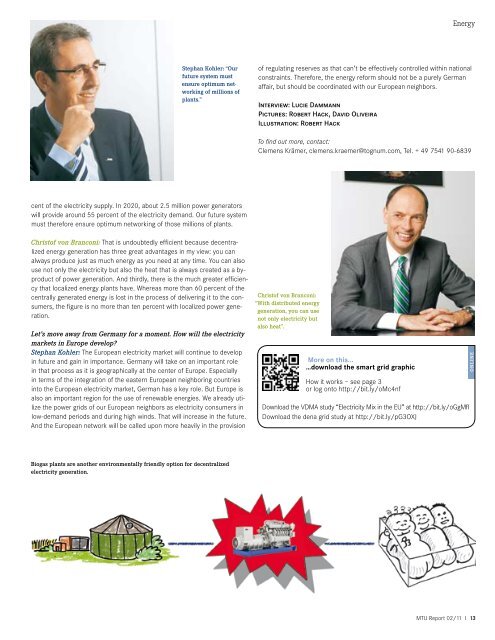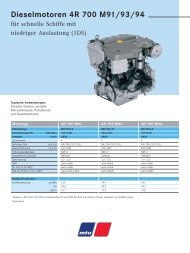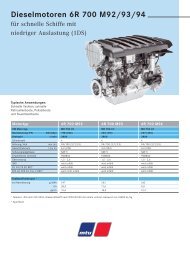Create successful ePaper yourself
Turn your PDF publications into a flip-book with our unique Google optimized e-Paper software.
Stephan Kohler: “Our<br />
future system must<br />
ensure optimum networking<br />
<strong>of</strong> millions <strong>of</strong><br />
plants.”<br />
cent <strong>of</strong> the electricity supply. In 2020, about 2.5 million power generators<br />
will provide around 55 percent <strong>of</strong> the electricity demand. Our future system<br />
must therefore ensure optimum networking <strong>of</strong> those millions <strong>of</strong> plants.<br />
Christ<strong>of</strong> von Branconi: That is undoubtedly efficient because decentralized<br />
energy generation has three great advantages in my view: you can<br />
always produce just as much energy as you need at any time. You can also<br />
use not only the electricity but also the heat that is always created as a byproduct<br />
<strong>of</strong> power generation. And thirdly, there is the much greater efficiency<br />
that localized energy plants have. Whereas more than 60 percent <strong>of</strong> the<br />
centrally generated energy is lost in the process <strong>of</strong> delivering it to the consumers,<br />
the figure is no more than ten percent with localized power generation.<br />
Let’s move away from Germany for a moment. How will the electricity<br />
markets in Europe develop?<br />
Stephan Kohler: The European electricity market will continue to develop<br />
in future and gain in importance. Germany will take on an important role<br />
in that process as it is geographically at the center <strong>of</strong> Europe. Especially<br />
in terms <strong>of</strong> the integration <strong>of</strong> the eastern European neighboring countries<br />
into the European electricity market, German has a key role. But Europe is<br />
also an important region for the use <strong>of</strong> renewable energies. We already utilize<br />
the power grids <strong>of</strong> our European neighbors as electricity consumers in<br />
low-demand periods and during high winds. That will increase in the future.<br />
And the European network will be called upon more heavily in the provision<br />
Biogas plants are another environmentally friendly option for decentralized<br />
electricity generation.<br />
<strong>of</strong> regulating reserves as that can’t be effectively controlled within national<br />
constraints. Therefore, the energy reform should not be a purely German<br />
affair, but should be coordinated with our European neighbors.<br />
Interview: Lucie Dammann<br />
Pictures: Robert Hack, David Oliveira<br />
Illustration: Robert Hack<br />
To find out more, contact:<br />
Clemens Krämer, clemens.kraemer@tognum.com, Tel. + 49 7541 90-6839<br />
Christ<strong>of</strong> von Branconi:<br />
“With distributed energy<br />
generation, you can use<br />
not only electricity but<br />
also heat”.<br />
more on this...<br />
…download the smart grid graphic<br />
How it works – see page 3<br />
or log onto http://bit.ly/oMc4nf<br />
Energy<br />
Download the VDMA study “Electricity Mix in the EU” at http://bit.ly/oGgMfI<br />
Download the dena grid study at http://bit.ly/pG3OXJ<br />
ONLINE<br />
<strong>MTU</strong> Report 02/11 I 13
















